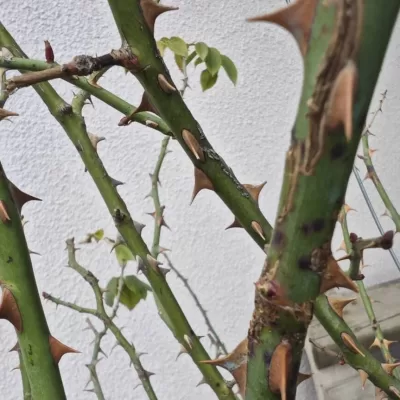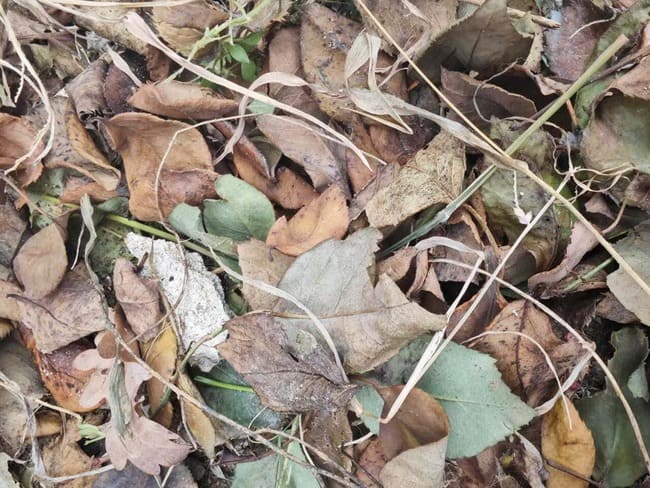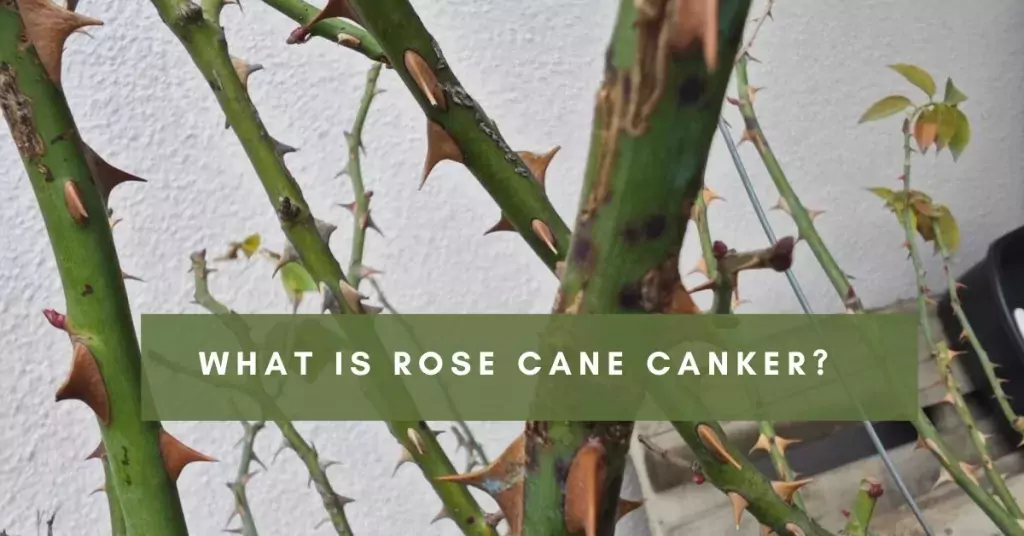Cane Canker is a fungal disease that affects roses, causing damage and sometimes death to the affected canes. It’s caused by various fungal pathogens, most commonly Leptosphaeria coniothyrium. These fungi enter the rose through wounds, like pruning cuts, insect damage, or even frost cracks. Upon entry, they establish colonies within the vascular tissues, causing a disturbance in the circulation of water and nutrients, ultimately leading to the demise of the cane.
Symptoms of rose cane canker:
- Discolored canes: Look for brown, black, purple, or yellow patches or spots on the canes. The discoloration may be localized or spread along the entire cane.
- Dieback: Infected canes may die from the tips, gradually losing leaves and flowers.
- Cankers: Sunken areas with rough, cracked bark develop on the canes, sometimes with tiny black fruiting bodies visible.
- Stunted growth: The overall growth and flowering of the rose bush may be affected.

Causes:
- Wounds: Improper pruning techniques, insect damage, winter injuries, and even hail can create entry points for the fungus.
- Stress: Water stress, nutrient deficiencies, and poor soil drainage can weaken the rose, making it more susceptible to infection.
- Moist conditions: Wet and humid weather favors fungal growth and spread.
- Fungal spores: These microscopic reproductive units can travel through the air and land on open wounds, starting new infections.
Fighting Cane Canker:
- Prevention is vital: Proper pruning: Use sharp, clean tools and angle cuts above a healthy bud. Disinfect tools after each use with a Botanical Disinfectant Solution.
# | Product | Title | Rating | |
1 | 5/5 | |||
2 | 5/5 | |||
3 | 5/5 | |||
4 | 5/5 |
- Wound treatment: Apply a fungicide paste to fresh pruning cuts to help prevent infection.
- Good cultural practices: Water deeply and infrequently, provide good air circulation, and maintain proper soil drainage.
- Choose resistant varieties: Some rose varieties are more resistant to cane canker than others.
- Disease management: Early detection and removal: As soon as you see symptoms, prune out infected canes at least 2-3 inches below the visible canker. Dispose of the infected material properly (don’t compost).
- Fungicide application: Apply a fungicide labeled for cane canker according to the instructions.
- Improve plant health: Address any underlying stress factors like nutrient deficiencies or water problems.

Get Your Free Lunar Gardener's Calendar 2025!
Join the Lunar Gardening Revolution! Subscribe now to receive our exclusive Free Lunar Gardener’s Calendar for 2025. Harness the power of the moon to optimize your planting, nurturing, and harvesting.
Additional tips:
- Clean up fallen leaves and debris: This helps reduce fungal spore buildup.
- Avoid overhead watering: This can keep the canes wet for extended periods, promoting fungal growth.
- Monitor your roses regularly: Early detection and intervention are crucial for successful disease management.

Remember:
Although the impact of cane canker can be significant, implementing effective prevention measures, promptly identifying symptoms, and administering appropriate treatment can safeguard your roses, ensuring their continued health and beauty.





